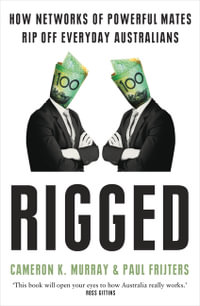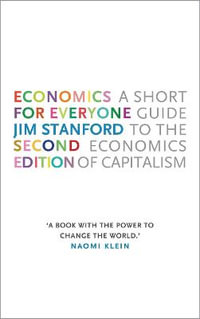| Acknowledgments | p. xiii |
| What Went Wrong and What We Can Do about It | p. 1 |
| It The Fatal Flaw | p. 1 |
| Assuming Away What Matters Most | p. 2 |
| The Imperfect Knowledge Alternative | p. 6 |
| Fishermen and Financial Markets | p. 7 |
| The Survival of the Rational Market Myth | p. 8 |
| Opening Economics and Finance to Nonroutine Change and Imperfect Knowledge | p. 11 |
| Imperfect Knowledge Economics and Its Implications | p. 12 |
| A New Understanding of Asset-Price Swings, Risk, and the Role of the State | p. 14 |
| The Critique | |
| The Invention of Mechanical Markets | p. 21 |
| Economists' Rationality or Markets? | p. 22 |
| Was Milton Friedman Really Unconcerned about Assumptions? | p. 24 |
| The Post-Crisis Life of Interacting Robots | p. 28 |
| Missing the Point in the Economists' Debate | p. 35 |
| The Distorted Language of Economic Discourse | p. 38 |
| The Folly of Fully Predetermined History | p. 41 |
| The Fatal Conceit Revisited | p. 43 |
| The Pretense of Exact Knowledge | p. 46 |
| The Economist as Engineer | p. 47 |
| Staying the Course in the Face of Reason | p. 50 |
| The Orwellian World of ôRational Expectationsö | p. 55 |
| Muth's Warning Ignored | p. 59 |
| The Rational Expectations Revolution: Model Consistency as a Standard of Rationality | p. 61 |
| The Spurious Narrative of Rational Expectations | p. 62 |
| A World of Stasis and Thought Uniformity | p. 63 |
| Economists' Rationality and Socialist Planning | p. 66 |
| The Figment of the ôRational Marketö | p. 71 |
| Pseudo-Diversity in the ôRational Marketö | p. 73 |
| The Irrelevance of the ôRational Marketö | p. 76 |
| Beware of Rational Expectations Models | p. 77 |
| The Fatal Conceit of the Rational Expectations Hypothesis | p. 79 |
| Castles in the Air: The Efficient Market Hypothesis | p. 81 |
| The Market Metaphor | p. 82 |
| Imagining Markets in a Fully Predetermined World | p. 84 |
| Samuelson's Doubts | p. 89 |
| The Illusory Stability of the ôRational Marketö | p. 92 |
| Efficient Market Hypothesis and Asset-Price Swings | p. 96 |
| The Fable of Price Swings as Bubbles | p. 103 |
| Reinventing Irrationality | p. 104 |
| Bubbles in a World of Rational Expectations: Mechanizing Crowd Psychology | p. 105 |
| A Seductive Narrative of Behavioral Bubbles | p. 109 |
| Limits to Arbitrage: An Artifact of Mechanistic Theory | p. 111 |
| The Trouble with Behavioral Bubbles | p. 112 |
| Forgotten Fundamentals | p. 114 |
| An Alternative | |
| Keynes and Fundamentals | p. 117 |
| Was Keynes a Behavioral Economist? | p. 120 |
| Imperfect Knowledge and Fundamentals | p. 122 |
| Are Fundamentals Really Irrelevant in the Beauty Contest? | p. 124 |
| Fundamentals and Equity-Price Movements: Evidence from Bloomberg's Market Stories | p. 128 |
| Speculation and the Allocative Performance of Financial Markets | p. 149 |
| Short-Term and Value Speculators | p. 154 |
| How Short-Term Speculation Facilitates Value Speculation | p. 156 |
| Speculation and Economic Dynamism | p. 160 |
| Fundamentals and Psychology in Price Swings | p. 163 |
| Bulls, Bears, and Individual Forecasting | p. 166 |
| Persistent Trends in Fundamentals | p. 168 |
| Guardedly Moderate Revisions | p. 169 |
| Price Swings in Individual Stocks and the Market | p. 172 |
| Price Swings, Genuine Diversity, and Rationality | p. 173 |
| Sustained Reversals | p. 173 |
| Bounded Instability: Linking Risk and Asset-Price Swings | p. 175 |
| The Indispensable Role of Asset-Price Swings in Allocating Capital | p. 177 |
| Historical Benchmarks as Gauges of Longer-Term Prospects | p. 179 |
| The Unfolding of Excessive Price Swings | p. 182 |
| Linking Risk to Distance from Benchmark Levels | p. 187 |
| How Markets Ultimately Self-Correct | p. 189 |
| The Return of Fundamentals | p. 192 |
| Contingency and Markets | p. 195 |
| Contingent Market Hypothesis | p. 198 |
| Contingency and Instability of Economic Structures | p. 199 |
| The Fleeting Profitability of Mechanical Trading Rules | p. 205 |
| Temporary Profit Opportunities | p. 212 |
| An Intermediate View of Markets and a New Framework for Prudential Policy | p. 214 |
| Restoring the Market-State Balance | p. 217 |
| The Importance of Policy Reform for Financial Markets | p. 218 |
| Rationale for Active State Intervention in Financial Markets | p. 227 |
| Excess-Dampening Measures and Guidance Ranges | p. 229 |
| Active Excess-Dampening Measures | p. 237 |
| Excessive Price Swings and the Banking System | p. 243 |
| Imperfect Knowledge and Credit Ratings | p. 246 |
| Epilogue | p. 249 |
| What Can Economists Know? | p. 249 |
| The Search for Omniscience | p. 250 |
| Sharp versus Contingent Predictions | p. 252 |
| Recognizing Our Own Imperfect Knowledge | p. 253 |
| Imperfect Knowledge Economics as the Boundary of Macroeconomic Theory | p. 255 |
| References | p. 257 |
| Index | p. 273 |
| Table of Contents provided by Ingram. All Rights Reserved. |
























